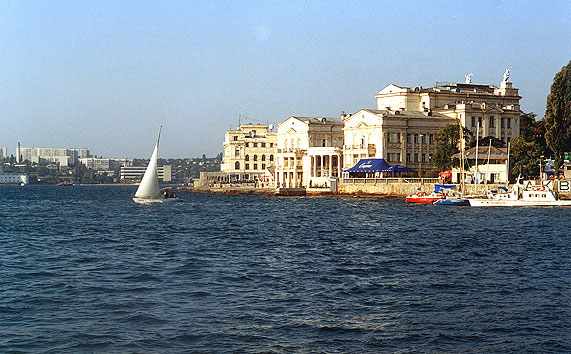by Zbigniew Brzezinski* As chaos explodes in Ukraine and the threat of Russian intervention persists, the responsibility of the west to help attain a constructive outcome becomes more self-evident. Viktor Yanukovich has shown himself to be a mendacious schemer, a coward and a thief.
As chaos explodes in Ukraine and the threat of Russian intervention persists, the responsibility of the west to help attain a constructive outcome becomes more self-evident. Viktor Yanukovich has shown himself to be a mendacious schemer, a coward and a thief. His palatial personal residence in an impoverished country speaks for itself. Russia’s President Vladimir Putin would be making a fatal mistake by backing him.
But Russia can still plunge Ukraine into a destructive and internationally dangerous civil war. It can prompt and then support the secession of Crimea and some of the industrial eastern portions of the country.
Mr Putin may choose to ignore the fact that such aggression would guarantee the enduring hatred of Russia by the majority of Ukrainians, irrespective of the short-run outcome of any civil war abetted by Moscow.
That in turn would also mean his nostalgic dream of heading a Russian "Eurasian Union” would be exposed as an enterprise based on intimidation and coercion – not exactly an attractive vision for any of the recently sovereign components of the former Soviet Union.
It is probable Ukrainian national self-assertion is already fortifying the post-Soviet republics of central Asia, notably Kazakhstan and Uzbekistan, to stiffen resistance to Moscow’s continuing effort to deprive them of sovereignty. The newly assertive and increasingly nationalistic political and business elites of these states have no desire again to become part of a Russian empire named by Mr Putin the "Eurasian Union”.
The west, however, needs to play a constructive role in forestalling the potential explosion of regional violence in Ukraine abetted from Russia. That will take concerted action by the US and the EU.
The US could and should convey clearly to Mr Putin that it is prepared to use its influence to make certain a truly independent and territorially undivided Ukraine will pursue policies towards Russia similar to those so effectively practised by Finland: mutually respectful neighbours with wide-ranging economic relations with Russia and the EU; no participation in any military alliance viewed by Moscow as directed at itself but expanding its European connectivity.
In brief, the Finnish model is ideal for Ukraine, the EU and Russia in any larger east-west strategic accommodation.
But to be credible to the Kremlin, the US needs also to spell out privately that attempts to destabilise the emerging democracy in Kiev or detach parts of Ukraine – not to mention even overt or covert Russian participation in its neighbour’s domestic conflicts – would compel Washington to use its influence internationally to prompt steps that would be economically costly to Moscow.
Options to that effect can range from unilateral individual and state-to-state financial sanctions to a review of Russia’s status in the World Trade Organisation, the World Bank and the Group of Eight leading industrial nations.
Obviously, the EU would need to be a solid partner in any such effort, since it is a significant trader with Russia. Contemporary Russia is not economically invulnerable to the consequences.
But even more urgent is the need for the EU to formulate a significant financial emergency package for Ukraine. Otherwise, the country will plunge into destructive financial chaos.
The lead in Europe should be taken by Germany and the UK. The latter’s role as a haven for Russian and Ukrainian financial oligarchs gives London special leverage. But every EU country should make some sacrifice in an effort to avert a potentially catastrophic Ukrainian economic collapse.
The Europeans and especially the UK might be more inclined to undertake such a collective effort if the top 10 Ukrainian oligarchs – principal beneficiaries of the country’s stunningly widespread corruption – were all "persuaded” to donate $1bn each to their country’s financial rehabilitation.
Mr Yanukovich’s fabulously wealthy dentist son should be able to match the resulting $10bn. The Ukrainian public would certainly welcome such a collective contribution.
Obviously the US and the EU, hopefully with Russia’s constructive co-operation, should continue to press the dominant democratic forces in Kiev to adopt a stance not of revenge and retribution but of national unification and political moderation. That is achievable given the crucial leaders who emerged in Maidan Square are moderates.
Irrespective of what happens in the near future, I continue to believe that sooner rather than later Ukraine will be truly a part of democratic Europe. Later rather than sooner, Russia will follow unless it isolates itself and becomes a semi-stagnant imperialistic relic.
*The writer was national security adviser to US president Jimmy Carter and wrote ‘Strategic Vision: America and the Crisis of Global Power’
("Financial Times", February 24, 2014)




